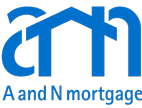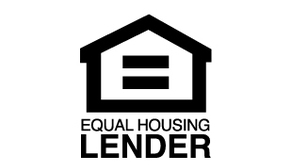In 2016, non-bank lenders grabbed a bigger share of the home loan market than banks. Even though banks had a healthy 44% share of the loan market, non-bank lenders did even better with a 47% share. These statistics reflect a continuing trend toward non-bank mortgages.
We understand what banks are, but who are these “non-bank lenders?” Although they are also financial institutions, non-bank lenders differ from banks in four fundamental ways:
Many mortgage seekers who previously would have been approved were shut out by higher down payment, income, and credit score requirements.
- They don’t have a full banking license.
- They don’t take deposits.
- They are not government authorized institutions as are banks.
- Unlike banks which fund loans from customers’ deposits, non-bank lenders receive funding for loans from banks or investors.
In response to the widespread defaults on home loans during the Great Recession, banks tightened their qualifications for mortgage seekers even as the housing market rebounded. Many mortgage seekers who previously would have been approved were shut out by higher down payment, income, and credit score requirements.
Non-Bank Home Loan Lenders Step in to Fill the Void
There are many advantages of getting a mortgage from a non-bank lender:
Easier Financial Criteria to Meet
Homebuyers with average credit who are no longer acceptable for mortgage loans by banks will find it much easier to get a home loan approved by a non-bank lender. These alternative mortgage lenders range from large online institutions to small, locally owned businesses. They often provide FHA loans, too.
Typically, homebuyers will save thousands of dollars in mortgage rates and fees with a non-bank lender.
Lower Down Payment Requirements
Banks typically require a 20% down payment on mortgage loans, but non-bank lenders usually require only a 3% to 3.5% down payment. This opens the door for home ownership for many people who would be turned away by banks.
Flexible Rates & Fees
Heavily regulated, banks have more of a “one size fits all” approach to mortgage rates and fees with very little wiggle room to be creative. Non-bank lenders can be flexible and accommodate a wider range of home loan applicants. Typically, homebuyers will save thousands of dollars in mortgage rates and fees with a non-bank lender.
A Haven for Self-Employed Homebuyers
Without the harsher loan criteria of banks, alternative non-bank lenders can provide an easier approval process for many self-employed individuals with steady income and good credit scores who have previously been shut out of the homebuying process.
Faster Home Loan Approval Process
A non-bank mortgage lender will help you move through the mortgage approval process much faster than a loan officer at a large bank.
Non-Bank Lenders Are Specialists
Banks are considered “generalists” because they offer so many financial services. In contrast, non-bank lenders specialize in a specific type of product like mortgages. By focusing on one financial service, they know much more about it than a loan officer at a big bank and can provide wise insights into the best Chicago home loan options for your situation.
If you are one of the many Americans who have been turned down by a bank and shut out of the homebuying process, take heart in the fact that non-bank lenders can give you options you never had before. Talk to a mortgage broker in Chicago today and enjoy expert advice about the best non-bank lender for your unique needs.
A and N Mortgage Services Inc, a mortgage broker in Chicago, IL provides you with high-quality home loan programs tailored to fit your unique situation with some of the most competitive rates in the nation. Whether you are a first-time homebuyer, relocating to a new job, or buying an investment property, our expert team will help you use your new mortgage as a smart financial tool.








